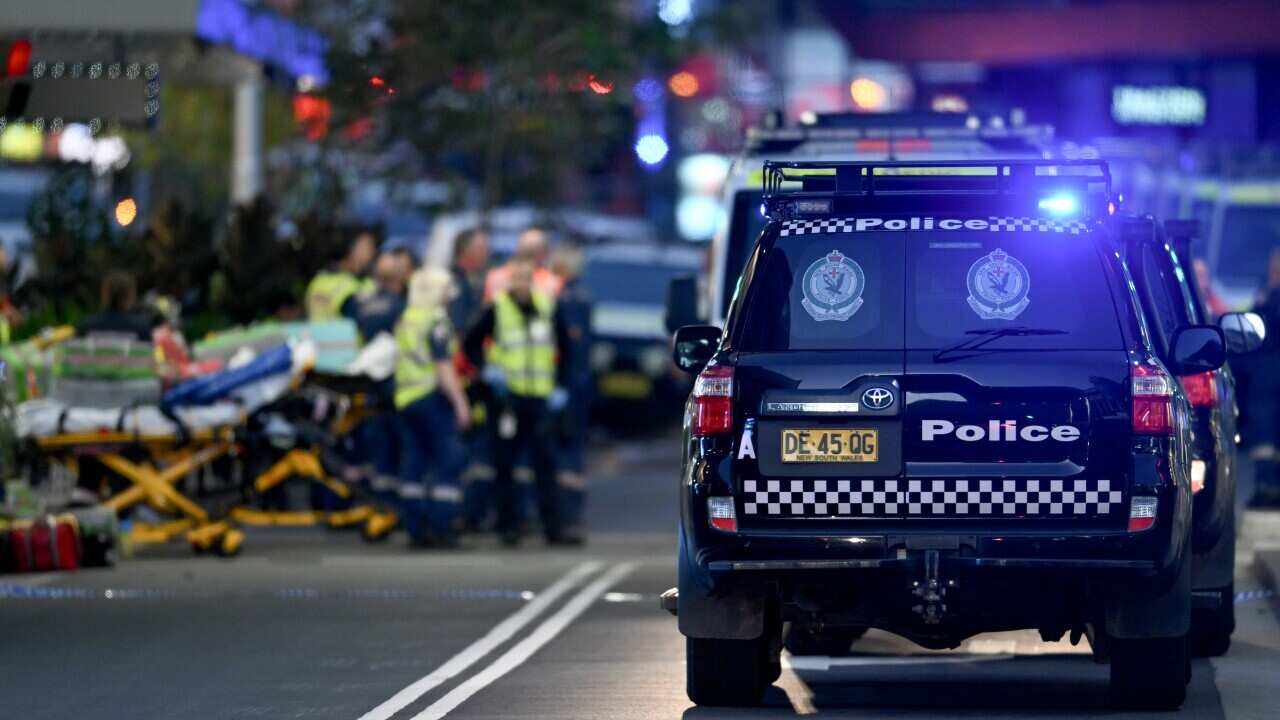A number of harrowing stories have made headlines over the past week.
You may be feeling stressed or anxious after reading about the two stabbing attacks in Sydney, or the escalating violence in the Middle East.
However, experts have previously told SBS News there are steps you can take to protect your mental health during distressing news cycles.
Feelings of stress and anxiety aren't likely to be helped by social media exposing us to "people's fear and trauma, like we've not seen before," Dr Grant Blashki, lead clinical adviser for Beyond Blue, told SBS News in October, shortly after Palestinian militant group Hamas launched and attack on southern Israel.
"The footage is often first-person, visually graphic, close-up, and it has an immediacy to it," he told SBS News.
"It's all very raw and unfiltered by a number of important civil society filters, such as journalistic or editorial standards that you would see in a newspaper or television.
"There's no consideration of impact on families (of those involved) or underage audiences or vulnerable people, so that means that people get exposed to some pretty horrific footage that really creates a lot of upset."
Here's what you can do to protect your mental well-being while staying engaged with what's making news.
Stop doom-scrolling
Despite the distressing nature of many news events, "there are emotions that drive us to watch and engage", Blashki said.
"All of us can have that sort of perverse interest," he said.
"We're also trying to understand, and there can be a sense of powerlessness."

There's only so much bad news one person can handle. Source: Getty / Isabel Pavia
"Even though humans are generally naturally resilient, we've all got a tipping point," he told SBS News.
"It can start to overwhelm us emotionally if we engage with that content too much, or if there are people that we care about that are going through that awful experience."
"You need to monitor your stress levels and start to know when maybe you're heading into that distress territory and you need some time out, because that's good for us."
Blashki said that, if you find you're caught up in doom-scrolling or watching distressing videos online, there are five questions you should ask yourself:
- Is this mentally healthy for me to watch?
- Is there something more constructive that I could do to help the victims at this time?
- Am I just playing into a propaganda campaign?
- Am I being manipulated by tech platform algorithms?
- Do I have a plan to control my media engagement, rather than be a passive recipient?
If you're a particularly visual person, it might be better to get your news from the radio, he added.
Don't engage in online arguments
The high emotion often surrounding major news events can often spill over into social media arguments — something both Blashki and Carbone advise avoiding.
"It's very easy to get sucked in and drawn into some emotional debates online," Carbone said.
"But the truth is, it's very hard to change other people's opinions, and sadly, some people aren't there to have a conversation — they're trying to provoke you, they're trying to cause distress.
"You really need to just know when to not get involved in those sorts of discussions."
Put things into perspective
Another way to protect your mental well-being during distressing news events is to keep things in perspective, both Blashki and Carbone said.
"It's pretty normal to start to catastrophise and think of all the bad things that are happening," Carbone said.
"We've been through a hell of a lot in Australia over the last three or four years … but we have to make sure we don't just sort of start to get overwhelmed by the negativity."
He said it's important to remember that there people actively working to resolve any issue.
"Hopefully, in most people's lives, there are also good things happening," he said.
Look after yourself
Employing basic self-care strategies is also important in maintaining mental wellbeing, Blaskhi and Carbone said.
These strategies are:
- Maintaining your regular routine
- Staying active
- Eating well
- Getting enough sleep
- Socialising
- Limiting alcohol consumption
- Talking to friends and family about how you're feeling
Seek professional help
If none of these strategies work, it could be a sign that you need professional help.
"Some red flags for me that people are tipping from general stress in towards a mental health condition would be your mental health issues are interfering with day-to-day life, so you know you can't fulfil usually responsibilities or go to work, or it's interfering with relationships, or you're finding that you're ruminating - that you just can't stop thinking about things - or you can't sleep," Blashki said.
When you start feeling like that, you could benefit from seeking support from a mental health organisation like Beyond Blue, he said.
Another option is to visit your GP and get them to create a mental health care plan for you so you can get "some really good psychological support".
Readers seeking support with mental health can contact Beyond Blue on 1300 22 4636. More information is available at . supports people from culturally and linguistically diverse backgrounds.




